(Published in the Business Standard, December 2016)
Some of the pleasure of a Books of the Year list is felt by the reader, but only some. I hope I never grow so jaded as to lose the pleasure of going over each month’s reading diary, revisiting the surprise of discovery, the deeper satisfaction of letting an author unsettle you, repack the luggage of your mind.
This is, as always, a partial list and leaves out a great deal, but it might be a useful starting point for readers.
Books of the times:
Secondhand Time: Svetlana Alexievich (Juggernaut)
Told like a “novel in voices”, Alexievich collects oral histories of the Soviet Union that read like warnings to all citizens of the new, rising post-democracy empires: for every true believer, there are a dozen of the disillusioned, the cost of shattered dreams of a new world paid in the hard coin of people’s lives.
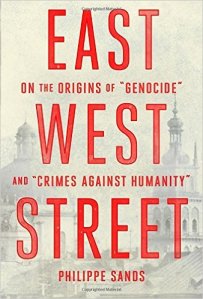
East West Street: On The Origins of Genocide and Crimes Against Humanity – Philippe Sands (Knopf)
This should be read by all dictators and caudillos, and if not, then at least by those they rule over. Sands traces the concepts of enormous crimes through the two men who fought to bring justice to a bloodied world; one of the most powerful reads of this decade.
Dark Money: The Hidden History Of The Billionaires Behind The Rise of the Radical Right: Jane Meyer (Doubleday)
It took five years for Jane Meyer to complete this investigation; at the end of it, she makes a convincing and chilling case that the Koch brothers and other billionaires and plutocrats, some of them extreme libertarians, have become an alternative power centre in the US. The wealth of these political donors, she argues, allows them to exert a “hugely disproportionate influence over politics and policy”.
Homo Deus: A Brief History Of Tomorrow: Yuval Harari (Harvill Secker)
“What’s more valuable – intelligence or consciousness?” For a vision of the future, shaped by technology, vastly unequal, richly creative but ushering in a troubled modernity, Harari is your prophet.
Time Travel: A History: James Gleick (PenguinRandomHouse)
Gleick’s restless, curious mind powers this exploration of the meaning of time, and the human fascination with time travel in literature, science, history, with a lovely nod to storytelling as the original time machine.
Born To Run: Bruce Springsteen (Simon & Schuster)
This open, honest and often funny memoir blends tales from the Boss’s epic live shows with his sharings on the depression that ran like a dark streak through his life. “If someone had to be the future, why not me?” he writes. No disagreement from the thousands of fans who swooned when he sang “Fire”.
Fiction:
Moonglow: Michael Chabon (HarperCollins)
A visit to see his dying grandfather sparked Moonglow, where a man on his deathbed tells stories of war, persecution, and looking up at the stars, dreaming of spaceflight. One of Chabon’s most beautiful, personal novels.
Ann Patchett: Commonwealth (HarperCollins)
Two families, five decades, and an author who steals their childhood to write a bestselling book that clears his writer’s block – Patchett in great form.
Aravind Adiga: Selection Day (Fourth Estate)
Adiga slices through the dazzling mythology that surrounds cricket in India with this story of two brothers, robbed of childhood by the game they love, handed success and failure in unequal measure.
Anita Nair: Chain of Custody (HarperCollins)
A brilliant dive into the tangled nets of Bangalore and the child trafficking industry by a writer who’s set her imprimatur on Indian crime with the Inspector Gowda series.
Karan Mahajan: The Association of Small Bombs (Viking)
A small bomb tears through the lives of the Khuranas, in this story of survivors, aspiring terrorists and a taut, unromanticized portrait of Delhi.
Han Kang: Human Acts (Portobello Books)
As Han Kang writes, capturing the reality of so many who survive political unrest, torture and betrayal in and outside South Korea – “No way back to the world before massacre.”
The Underground Railroad: Colson Whitehead (Doubleday)
Whitehead reimagines the underground network that slaves used as a real railroad, rewriting American history with a touch of steampunk.
The Sympathizer: Viet Than Nguyen (Grove Press)
Nguyen writes across the road from Graham Greene, in this tale of a communist double agent – “a spy, a spook, a man of two faces”—and a Vietnam starkly different from Hollywood’s US-centric imaginings.
Jinnah Often Came To Our House: Kiran Doshi (Tranquebar)
Mr Doshi said in an interview that he began by researching Partition, going back through the 1940s until he found himself all the way back in 1905, face-to-face with Jinnah. This subtle and moving historical novel, a personal favourite, leads the reader into the years before Partition, Independence and the creation of Pakistan, through the experiences of a young barrister, Sultan Kowaishi, and his wife Rehana.
Indian non-fiction:
Three exceptional books will reboot the way you think about India’s past and present: India’s War (Allen Lane), where Srinath Raghavan presents a gripping and completely different view of World War II; Incarnations: India in 50 Lives by Sunil Khilnani (Penguin Random House), which restores a complex, syncretic past through the portraits of 50 thinkers, artists, kings, poets, and reformers; and The Burning Forest (Juggernaut) by Nandini Sundar, which measures the state by its misrule over its most vulnerable citizens, such as the advivasis of Chhattisgarh, and its colossally short-sighted policy of development as a weapon of mass destruction.
Among the year’s best non-fiction: Ramachandra Guha’s Democrats and Dissenters (Penguin Random House) is useful reading for anyone who fears that the years of illiberal democracy are upon us; Barkha Dutt’s This Unquiet Land (Aleph) is a first-hand account of some of the country’s greatest political conflicts by a star reporter; and Anubha Bhonsle’s sensitive, well-researched Mother, Where’s My Country (Speaking Tiger) tells much of Manipur’s contemporary political struggles and its resentment against the state, through the stories of individuals. Shashi Tharoor lays bare the cruelty embedded in the idea of the Raj in An Era of Darkness: The British Empire in India (Aleph); William Dalrymple and Anita Anand explode myths around the world’s most controversial diamond in The Kohinoor (Juggernaut). Other excellent reads – Madhu Ramnath’s memoir of his years living with the Durwa peoples in Bastar, Woodsmoke and Leafcups; Priya Sarukkai Chhabria’s remarkable and soul-restoring Andal: The Autobiography of a Goddess (Zubaan); and Himalaya (Speaking Tiger), a superb anthology of adventures, meditations on and life in the mountains, edited by Ruskin Bond and Namita Gokhale.
“Will you work with me and help me tell my life? Of course, I’m not famous like Ambedkar and my book may not sell as much. But I do want to tell my story and that of my community. I’ll make the art, you make up the words. I will show, you tell.” The result is the extraordinary Finding My Way (Navayana), a collaboration between the artist Venkat Raman Shyam Singh and publisher/ writer S Anand. Venkat traces his journey as a Gond artist from Patangarh to Delhi, where he started as a rickshaw puller, weaves Kabir into his memories, and asks why adivasi art is not prized or given the space that it deserves.
Favourites:
Hisham Matar’s The Return (Penguin) is extraordinary, and incredibly moving: he was just 19 when his father was abducted by Libyan security forces, and Matar never saw him again. This memoir is about his return to Libya in 2012, in search of some kind of release from the past.
Susan Faludi’s In The Darkroom (Metropolitan/ Henry Holt) investigates the life of her estranged father, using his decision to transition through gender reassignment surgery and build a new identity for himself as Stefánie. This is a poignant, often sharp, inquiry into gender itself, but also into the tangled skeins of a difficult relationship between parent and a now-adult child.
Frantumaglia (Europa Editions), a collection of Elena Ferrante’s essays, shorter writings and interviews, is breathless, intense, rich with detail. Ferrante and her heroines, their obsessions and complex pleasures, inevitable pains, her awareness of the power of forbidden emotions and emotional transgressions: heady reading, sometimes claustrophobic, but often liberating.
Peter Wohlleben’s The Hidden Life of Trees (Greystone Books) became a surprise bestseller last year – his account of trees as thinking, feeling beings that communicate through a root network, of forests as living presences, will change the way you see the world around us. Siddhartha Mukherjee’s monumental The Gene (Simon & Schuster) was inspiring, unsettling and touchingly personal; he makes an adventure of science writing.
But in a year of troubling news and worldwide turbulence, two books stood out for their remarkable humanity, the hope their writers offered while facing the worst of news. Paul Kalanithi’s When Breath Becomes Air (Random House) came out posthumously; he faced the fact of his impending mortality as a surgeon, and didn’t flinch from asking the big questions about disease, death, and also life and love. Antoine Leiris lost his beloved wife in the Paris attacks, and in the aftermath of that tragedy, he made a deliberate choice: his son would not be taught fear or hate. You Will Not Have My Hate (Penguin Press) is a reminder that there is always the possibility of moving beyond hate, that even through the worst sort of grief, you can choose to believe in its opposite.

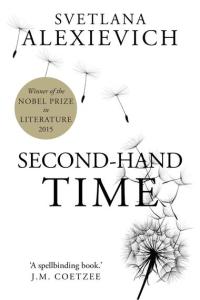
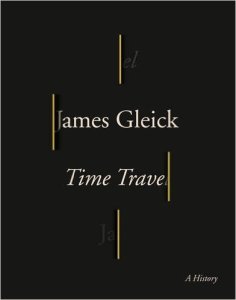
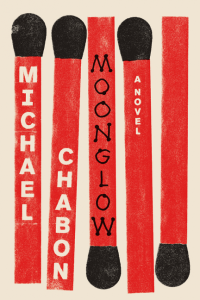
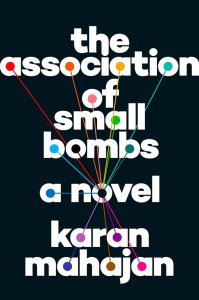
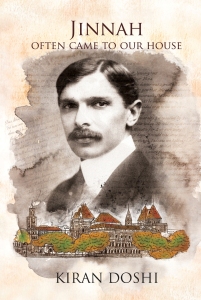
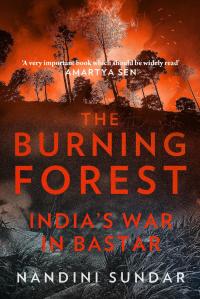






Leave a reply to Ayushman Khazanchi Cancel reply